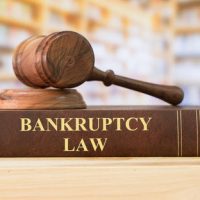Can You Pay a Chapter 13 Plan Off Early?

The cornerstone of a Chapter 13 bankruptcy is the repayment plan. This plan lasts three to five years, and you pay off priority debts along with a portion of nonpriority debt (which is usually unsecured debt like credit cards). At the end of the repayment plan, any remaining unsecured debt gets wiped out and you can start over financially.
One question we receive here at Nowack & Olson is whether a debtor can pay off their plan early. Maybe you have come into some money, or your cash flow plan has improved because of a promotion or raise. It is understandable that people want to finally get out from under bankruptcy. Read on for more information.
It is Only Sometimes Possible
To pay off a plan early, you will need the court’s permission, and the court will want your creditors to be in agreement (or at least not object). However, you can expect creditors to object for a very simple reason.
To understand why, let’s look closely at what a Chapter 13 bankruptcy really is. Unlike a Chapter 7, you do not lose any property. Instead, you agree to pay your discretionary income to your nonpriority (unsecured) creditors. At the end of the repayment plan, whatever debt remains unpaid gets discharged.
However, you have agreed to use your discretionary income for the duration of the payment period to pay off creditors. If your income rises, then your discretionary income will also rise. By right, your nonpriority creditors are entitled to this extra money that you make.
For example, when you start, you might only have $300 a month in discretionary income. If your discretionary income rises to $600 a month, the extra is not yours—you have agreed by entering Chapter 13 bankruptcy to contribute this extra to your creditors.
You Can End Early if You Pay Creditors in Full
There is one easy way to end a repayment plan early—pay off all creditors in full. This means paying all priority and nonpriority debt at 100% of what you owe. In this situation, there is no longer a need for the bankruptcy as no creditor will be impaired.
Dealing with a One-Time Boost to Income
You might have inherited a small amount of money, which you would like to use to make extra payments on your repayment plan. Because you are not permanently making more money, the trustee might let you make an extra payment and not increase the amount you contribute to your nonpriority creditors. However, you should fully consider your options with a bankruptcy attorney. For example, you might be better off putting that money in an interest-bearing account and not even raising the possibility of making extra payments.
Talk to a Doral Bankruptcy Attorney at Nowack & Olson
Repayment plans are a long haul, and we understand why many of our clients would like to get out of them early. However, before making any moves, give us a call. With locations in Doral, Boca Raton, Plantation, and Jupiter, we are never far away. Please call 866-907-2970 or submit an online message.
